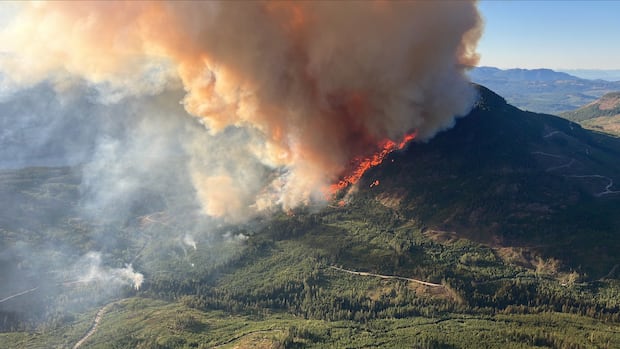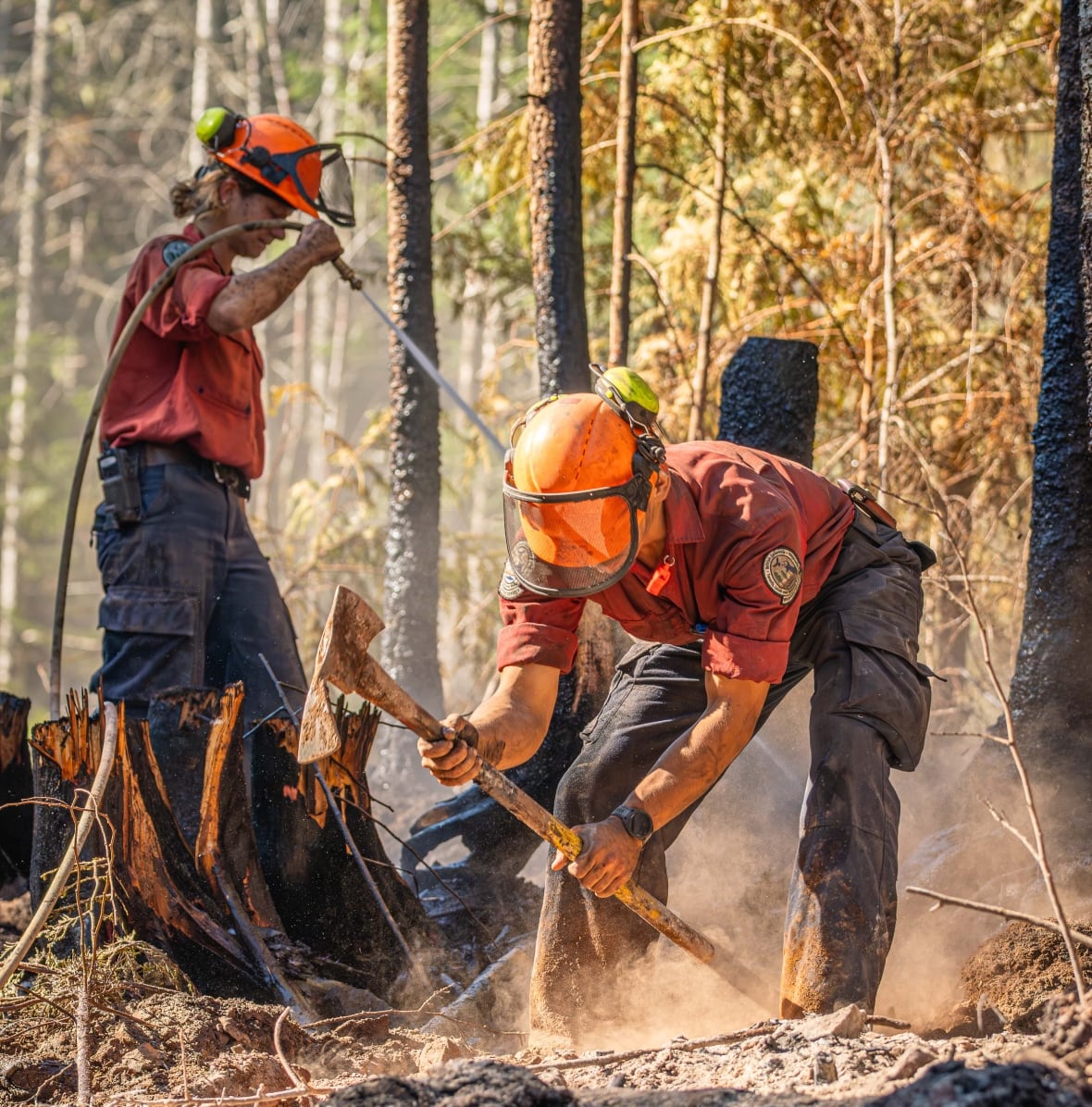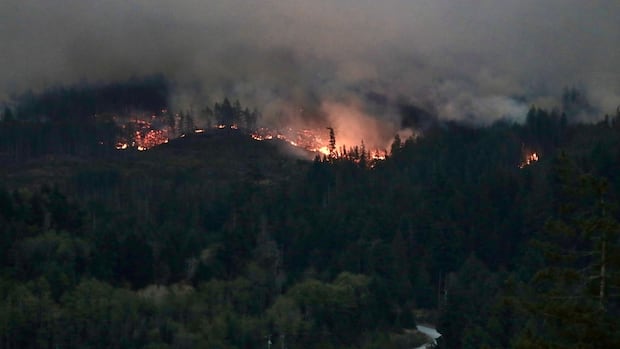As Canada endures another challenging wildfire season, calls are growing for the country to change how it prepares for, reacts and responds to the natural disasters.
Experts say Ottawa needs to rethink how it deals with wildfires, especially in the midst of a season that has seen thousands of Canadians from different parts of the country be forced to leave their homes.
As of Aug. 18, 7.8 million hectares have burned in Canada this year, according to the Canadian Interagency Forest Fire Centre.
A national wildland fire situation report states that, as of Aug. 13, the area burned is substantially greater than the 10-year average.
Ken McMullen, the president of the Canadian Association of Fire Chiefs, which represents municipal firefighters, has been calling for the creation of a national fire administration.
“We need that coordinating body at the federal level to work on the coordination, the response, the training, the equipment needed in order to most effectively put those resources around our provinces and territories,” McMullen said in an interview.
When asked by CBC News if the federal government will create a new entity or program to improve wildfire response, federal Emergency Management Minister Eleanor Olszewski said it is one idea under consideration.
Olszewski said she was looking at every opportunity and option to do things better so the same difficulties don’t emerge next wildfire season.
More focus on mitigation needed, experts say
While suppression is critical, Yolanda Clatworthy, the interim director of the Mitigating Wildfire Initiative, argues that it does not address the root cause of the wildfire crisis.
Clatworthy said there needs to be greater focus on prevention and mitigation.
WATCH | Some Canadians are calling on the federal government to re-examine how it deals with wildfires:

What a federal wildfire strategy could look like
Another relentless wildfire season across Canada has led to calls for the federal government to change how it reacts and responds, including organizing resources and becoming more proactive with fire mitigation strategies.
She said it is important for Canadians to discuss what it means if “unprecedented” wildfire seasons occur year after year.
“Spending upfront on mitigation and prevention actually is an enabling factor that amplifies response as well on the ground, and makes it easier for firefighters and front-line folks to be able to anchor in and action a fire to protect communities,” Clatworthy said.
She said mitigation and prevention work can include choosing where homes are built, how they are built, how communities are protected and how forests are managed.
 B.C. Wildfire Service crews are seen performing mop-up activities on the Wesley Ridge fire northwest of Nanaimo on Aug. 9, 2025. (B.C. Wildfire Service)
B.C. Wildfire Service crews are seen performing mop-up activities on the Wesley Ridge fire northwest of Nanaimo on Aug. 9, 2025. (B.C. Wildfire Service)
While there has been some discussion of creating a national firefighting force, Robert Gray, a wildland fire ecologist based in B.C., said a year-round contingent would be more effective.
“Once the snow is gone, you’re out there doing cultural and prescribed burning, fuels work, fire season comes along and you’ve got an extra resource now for firefighting,” he said.
“And then in the fall, they’re either doing post-burn restoration or they’re back to doing fuels work.
“That will enable us to kind of bend the curve on the amount of area that’s burning. If we don’t start to do more mitigation work, then we’re just chasing fires.”
Size of Canada is a challenge: expert
An idea presented by Glenn McGillivray, the managing director of the Institute for Catastrophic Loss Reduction and an adjunct professor of the disaster and emergency management program at York University, is to create a federal ground force made up of Indigenous people.
“They have millennia-long knowledge in the use of fire and the use of controlled burning and cultural burning,” he said.
Smoke ascends from a wildfire near Halls Harbour, N.S., in August 2025. (Patrick Morrell/CBC)
McGillivray added that the time is ripe for Canada to re-evaluate wildfire seasons, especially with a warming climate.
“We need to really start thinking differently about this fire problem,” he said. “We continue to think in the same ways — and it’s obviously not working.
However, there is a recognition that ultimately there are circumstances outside of Canada’s control, including the country’s sheer size.
“It’s a massive country — the second largest in the world … and almost 60 per cent of it is boreal forest,” McGillivray said, adding that large swaths of Canada are remote and difficult to get to.
“The idea that we’re going to be able to knock down fire and keep it down across the country is kind of a pipe dream. … I think we really have to be realistic that, again, there’s no easy fixes to this thing.”

